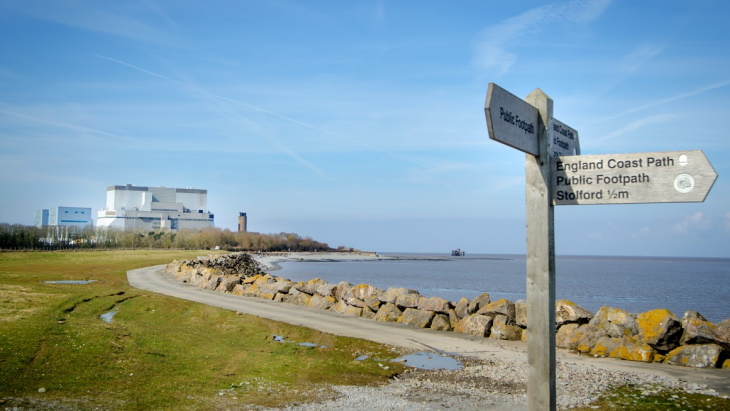The Hinkley Point B plant was first synchronised to the electricity grid in February 1976. The plant generated more than 311 terawatt-hours of electricity before it was permanently shut down in August 2022, when it moved into its defuelling phase.
Defuelling the plant involves removing more than 300 channels of fuel from each of the reactors. The fuel channels will be stripped and processed then taken to the on-site fuel storage pond to cool before being packaged into used fuel flasks and transported via rail to the Sellafield site in England.
EDF Energy has now finished the key milestone of defuelling Reactor 4 and similar work is due to start on the plant's second reactor, Reactor 3.
Once the power station is fuel-free, the nuclear site licence will then be transferred to the Nuclear Decommissioning Authority (NDA) for its subsidiary Nuclear Restoration Services to carry out decommissioning work. Fuel-free verification is when all of the used fuel has been certified as being removed from the site.
The UK's Office for Nuclear Regulation (ONR) said that, throughout the defuelling stage, it will continue to regulate the site "with a clear focus on post operations, when nuclear plants should move seamlessly into cleanout, decommissioning and dismantling".
Mike Webb, ONR's Head of Operating Reactors Sub-Division, said: "Since Hinkley Point B ceased generating, our inspectors have been focused on regulating the defuelling phase of the station. Defuelling is the process of safely removing the spent nuclear fuel from the reactors, which removes the vast majority of the radioactive hazard. We will continue to effectively and efficiently regulate the Hinkley Point B site throughout the entire defuelling and decommissioning phase to ensure the licensee complies with all regulations to safeguard workers and the public."
ONR said it has also received an application from EDF Energy to decommission Hinkley Point B and is inviting comments and feedback from all stakeholders on the environmental statement to help inform its decision on the application.
EDF had originally been responsible for total lifetime decommissioning of the seven AGR plants, which comprise Torness and Hunterston B in Scotland, Dungeness B in Kent, Hartlepool in Teesside, Heysham 1 and 2 in Lancashire and Hinkley Point B in Somerset. All these plants are scheduled to reach the end of their operational lives this decade.
However, in June 2021, the UK government and EDF agreed improved arrangements to safely and efficiently decommission the AGRs. Under the agreement, EDF will aim to shorten the time it takes to safely remove the fuel from the plants as they come offline, before working closely with the NDA to transfer ownership of the stations to the NDA.
Three of the seven AGR plants are currently in the defueling stage: Hunterston B, Hinkley Point B and Dungeness B. Four AGR plants are still in operation. Heysham 1 and Hartlepool are currently expected to operate until March 2026. Heysham 2 and Torness are currently due to generate until March 2028. However, EDF said it will "continue to review lifetimes to ensure the four generating stations can continue to support the UK's energy security for as long as it is safe and commercially viable to do so".








_97013.jpg)






